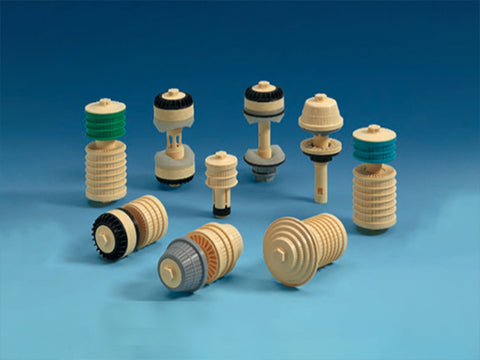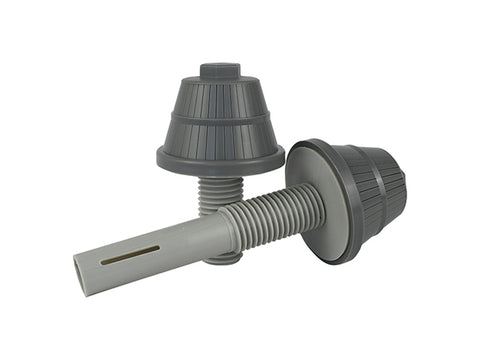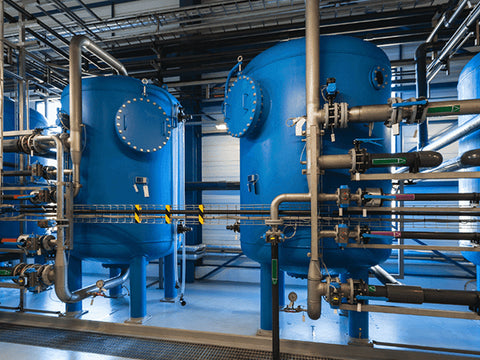
A strainer is a device used in piping systems to filter impurities and foreign particles from entering the liquid flow. They are essential in a variety of industrial applications, including water treatment, to ensure that the water used in industrial processes is free of contaminants that could damage equipment or disrupt processes.
Strainers act as the first line of defense in a piping protection system, filtering out any kind of debris, such as gravel, metal chips, and other deposits that can be fatal to the operation of sensitive mechanical equipment. The presence of strainers helps extend equipment life and reduce maintenance costs, making them a critical component in maintaining the efficiency and safety of piping systems.

Functions and Uses of Strainer
Strainers function as filters that separate solid particles from liquids by utilizing a sieve or mesh that has small holes. Particles larger than the holes will be retained, while the clean liquid will continue its flow. Here are some of the main uses of strainers:
-
Equipment Protection: Strainers protect equipment such as pumps, meters, and other system components from large particles that can cause damage or blockage.
-
Process Efficiency: By filtering out dirty particles, strainers help maintain industrial process efficiency and reduce downtime due to equipment maintenance.
-
Product Quality: In the food and beverage industry, strainers help ensure that the final product is free from physical contaminants, maintaining product quality and safety standards.
In addition, strainers are also important in waste management and environmental protection. By filtering out large particles and foreign objects from the waste stream before they enter further treatment facilities, strainers ensure that treatment systems can operate more effectively and efficiently. This reduces the risk of damage to sewage treatment equipment and improves the quality of the final effluent.

Types of Strainers
There are several types of strainers used depending on the need and type of particles that need to be filtered:
-
Y-Strainer: Resembling the letter Y in shape, effective for applications where relatively few particles need to be filtered.
-
Basket Strainer: Has a basket-shaped strainer, suitable for systems with larger amounts of dirt.
-
Duplex Strainer: Two strainers that can operate interchangeably, very useful for non-stop operations.
-
Simplex Strainer: This type of strainer is easy to maintain and suitable for applications that do not require continuous filter cleaning.
In addition, there is the Automatic Strainer which automatically cleans itself through a backwashing mechanism, very effective for operations that require minimal maintenance and high efficiency. This type of strainer is ideal for applications with micron-sized and high-volume impurities, such as in large municipal or industrial water treatment systems. Each of these strainer types is designed to meet specific specifications within the piping system, ensuring that they can handle the unique challenges of each application with maximum effectiveness.

Benefits of Strainers in Water Treatment Industry
In the context of water treatment, the use of strainers is crucial to ensure that the water produced meets set quality standards. This includes:
-
Reduction of Damage Risk: Removing particles that can damage components in the system.
- Increased Efficiency: Keeps water flowing smoothly and efficiently by reducing potential blockages.
-
Water Quality Consistency: Filtering particles maintains consistent water quality, important for applications such as drinking water or wastewater treatment.
In addition, strainers help in reducing operational costs by minimizing the need for equipment maintenance and repair. Effective use of strainers also reduces the frequency of filter changes at later stages, thus saving costs and time. In industrial sectors that require high hygiene standards, such as the pharmaceutical and chemical industries, strainers play a vital role in maintaining process hygiene and avoiding cross-contamination. This shows how important strainers are not only in maintaining water quality but also in supporting operational sustainability and overall industrial safety.
-
Strainers are a critical component in water treatment systems that serve to maintain water cleanliness and quality. By choosing the right type of strainer and performing regular maintenance, the efficiency and reliability of the piping system can be maintained. For a company like Watermart that specializes in the distribution of water treatment equipment, understanding the different types and functions of strainers is essential to providing the best solutions to customers.
Ensuring that the strainer used matches the specific needs of the application not only optimizes the process but also increases the service life of the equipment. As part of an effective water management strategy, the use of the right strainer adds significant value in maintaining water quality and safety in any industrial process.
Contact Watermart today via Whatsapp or Whatsapp.mail watermart" href="mailto:sales@watermart.co.id?Subject=Halo%20Watermart%20saya%20ingin%20bertanya%20untuk%20solusi%20pengolahan%20air%20sumur" target="_blank" rel="noopener noreferrer" data-mce-fragment="1">e-mail for consultation and more information about your strainer needs.

.png?width=50&height=50&name=Logo_Watermart_Perkasa-removebg-preview%20(1).png)


